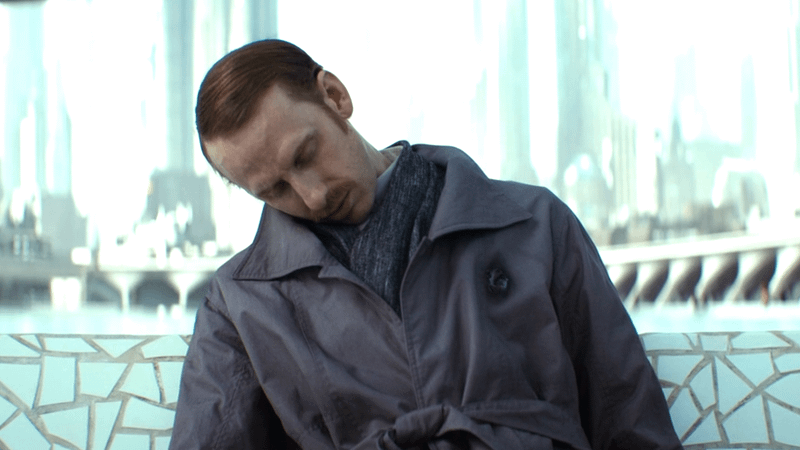
Stellan Skargard's Luthen Rael makes a devastating choice in Andor's Season 2 finale, one that leaves rebel informant Lonni Jung (Robert Emms) dead. The decision, while heartbreaking, is rooted in the harsh logic of rebellion: too many loose ends could destroy everything.
Andor Season 2, Episode 10, "Make It Stop," delivers a chilling yet fitting sendoff to one of its most compelling rebel spies, Lonni Jung. In doing so, it sharpens the show's portrait of Luthen. While yes, this action depicts him as a killer, it more so demonstrates him as a rebel visionary willing to sacrifice everything and everyone for the cause. Lonni's fate is sealed the moment he uncovers the existence of the Empire's superweapon, the Death Star, hidden within ISB intelligence. Lonni reveals to Luthen that he has had access to Dedro Meero's (Denise Gough) code cert for the past year, which is how he learned about the secret Death Star.

It's information too valuable to ignore but far too dangerous for someone like Lonni to be allowed to walk away with, even if he thinks he wasn't followed. "If they knew what I found, they wouldn’t have let me out of the building," he tells Luthen in what reads, in retrospect, like a tragic self-eulogy.

Killing Lonni is not an act of cruelty for cruelty's sake; it's strategic, even inevitable. Fans have seen Luthen build his rebellion on layers of secrecy and controlled risk, and Lonni is now suddenly a massive liability. If captured, he could be tortured or interrogated, and the existence of the Death Star (and Luthen's entire underground operation) could be exposed. Luthen's cold calculation isn't heartless, but it is merciless.

The moment also reflects Luthen's own fleeting sense of safety. Right after the kill, he douses the secret communications system in his antiquities shop in liquid metal, preparing for an endgame he knows he won't survive. When Dedra finally confronts him, unmasking him as Axis, Luthen doesn't run. He prepares to go down with the ship. His suicide attempt, thwarted by Dedra's cry for a medical team, underscores the extremity of his belief: that he and others like Lonni must die so the rebellion can live. A theme introduced in 2016's Rogue One and continued to an even greater extent in Andor.
What makes Lonni's death even more painful for audiences is the personal cost. When he reveals the truth to Luthen, he resists in an attempt to secure safe travel for himself and his family, a wife and daughter. The scene, which cuts away from the murder itself, leaves only Lonni's lifeless body slumped on a Coruscant bench, the cold architecture mirroring the emotional stiffness of the moment. There's no satisfaction in it, not even for Luthen. But in the logic of the rebellion, the fewer who know the truth, the stronger the lie that protects it.
In many ways, every decision made by the Andor creative team in the series finale is a domino effect leading to Rogue One and, ultimately, Star Wars: A New Hope. The finale notably sets up a direct connection to Rogue One through the return of Daniel Mays' character, Tivik. Tivik's request to speak only with Cassian sends Andor to the Ring of Kafrene, the exact mission that opens Rogue One, where Tivik provides intel about the Empire's "planet killer."
This final arc bridges the two stories seamlessly, similar to the Season 2, Episode 9 connection that Mon Mothma makes to Star Wars: Rebels. Even though characters like Luthen and Lonni are left in the past, with their stories told during the events of Andor, their sacrifices for the rebellion are felt throughout the galaxy in many years of Star Wars canon to come.












